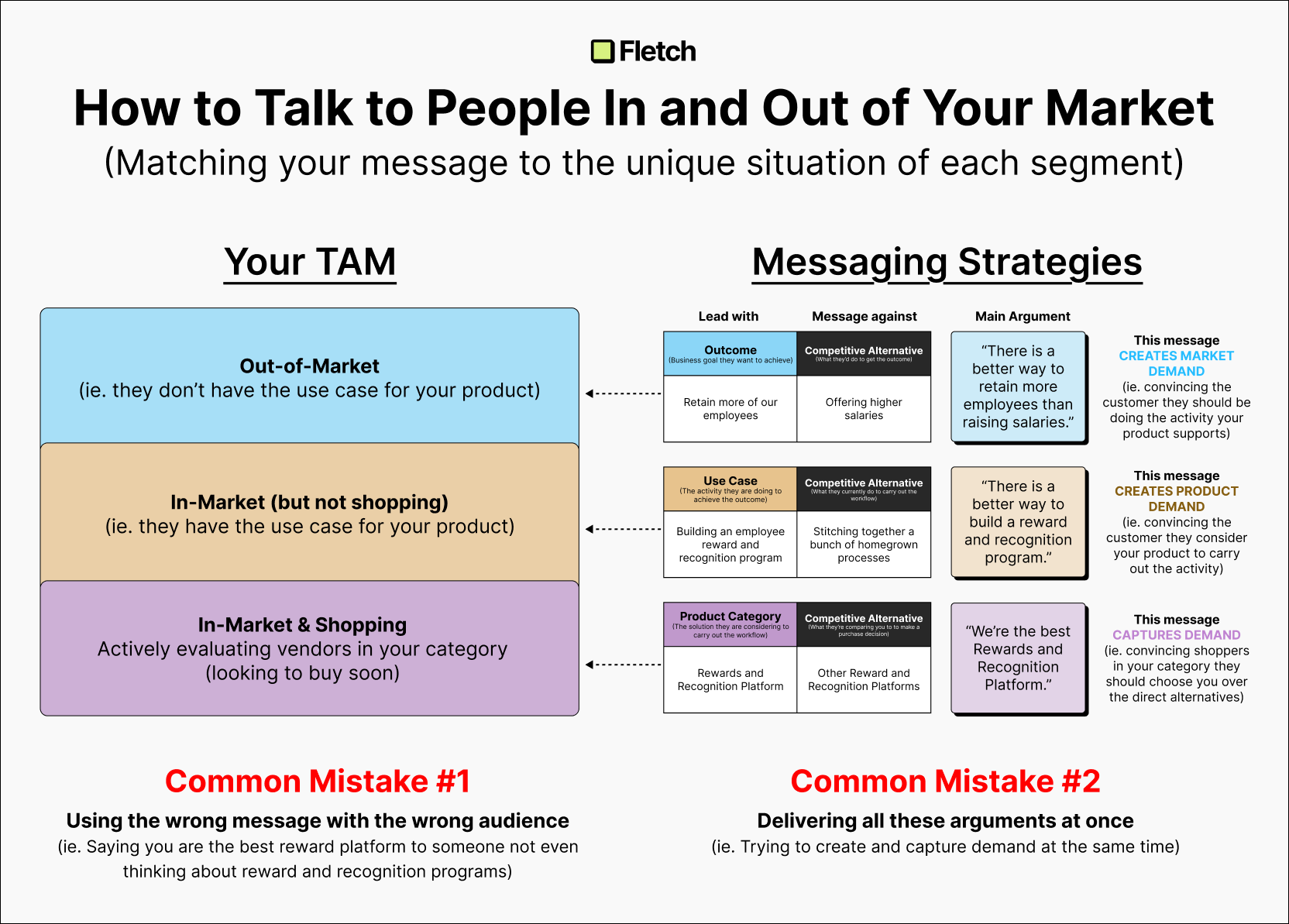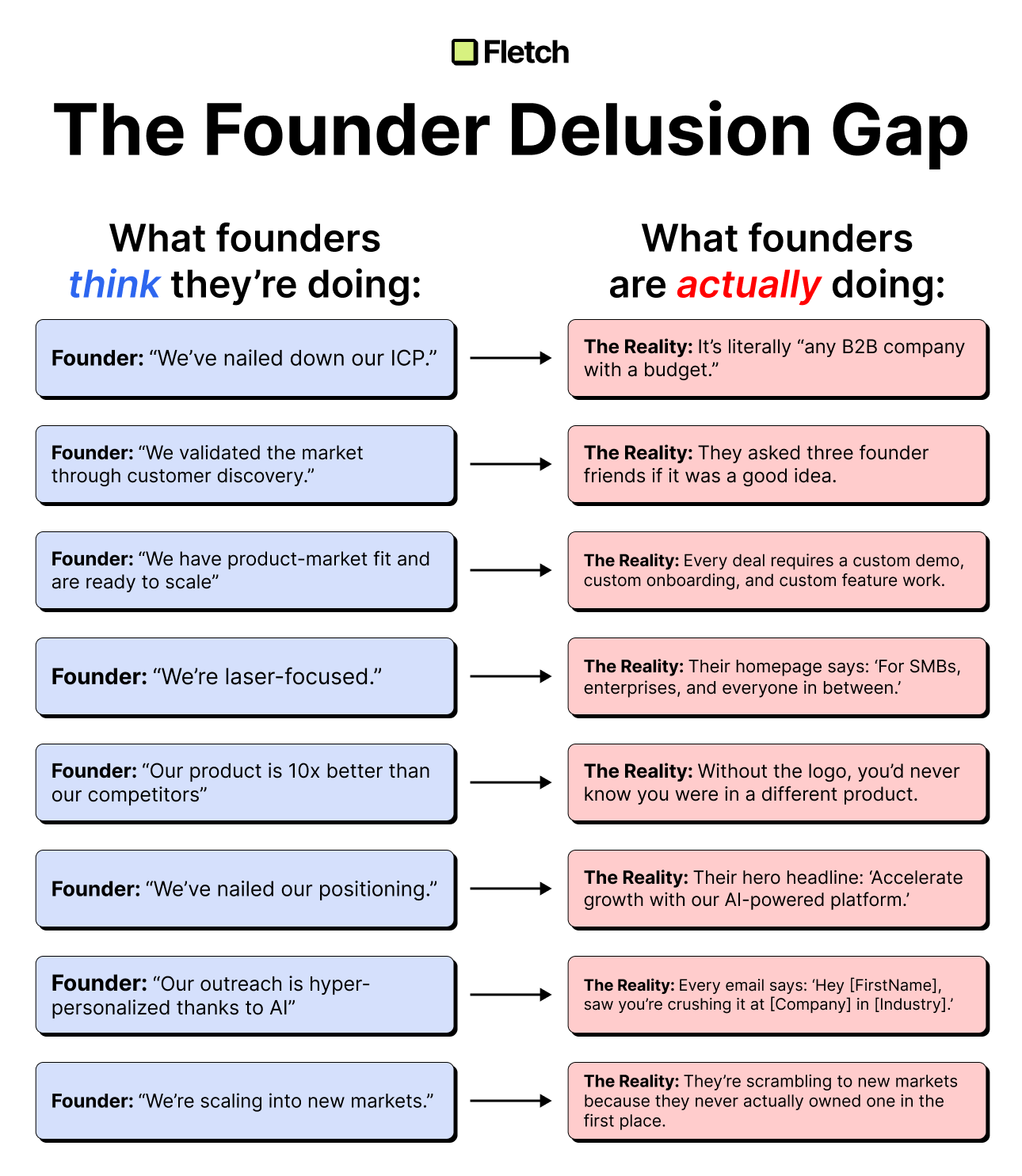Different Use Cases Represent Different Market Segments


The most important element of your positioning strategy is the use case you choose.
A quick definition:
Use Case — workflow(s) performed by potential customers that could be supported by your product
The "width" of your use case determines your positioning strategy.
If you position for a very narrow use case, the competitive alternatives and your differentiation will be very different than if you position for a very broad use case.
When a company like Lavender 💜 says they can help SDRs "write better emails" (i.e. the use case), they are positioning AGAINST writing emails manually and showing how their AI email coach drives better reply rates.
If you position for a very wide use case, your competitive landscape changes — and should your differentiation strategy.
When Apollo.io says they are "the only solution you need to run a world-class sales organization," they are trying to own the end-to-end workflow/use case of "doing sales."
Obviously, this a HUGE set of workflows that are accomplished by a variety of tools, manual processes, etc.
And so they must back up their claim with strong product differentiation and social proof.
A few takeaways:
→ If you own a wide use case that is very important to companies, you can command a higher ACV... yet your market is likely "smaller" in the true TAM sense.
This is the problem with software companies relying too heavily on marquee design partners in the early days. They can end up functioning as high-paid consultants building software that serves one enterprise and one enterprise alone.
→ If you own a very narrow use case, your target market is likely "larger" in the pure TAM sense... though you'll likely need to take a more PLG approach with a lower ACV.
→ There is huge success to be found in positioning on very narrow use cases AND very wide use cases, as demonstrated from the diagram below.
Additionally, being most known for a narrow use case (i.e. with a company like Gong being known for call recording) does not mean you can't also cover adjacent use cases.
The diagram below does not fully summarize what all these companies CAN do... it's simply a quick stab at what most people associate with them.

Ben Wilentz
Founder, Stealth Startup




